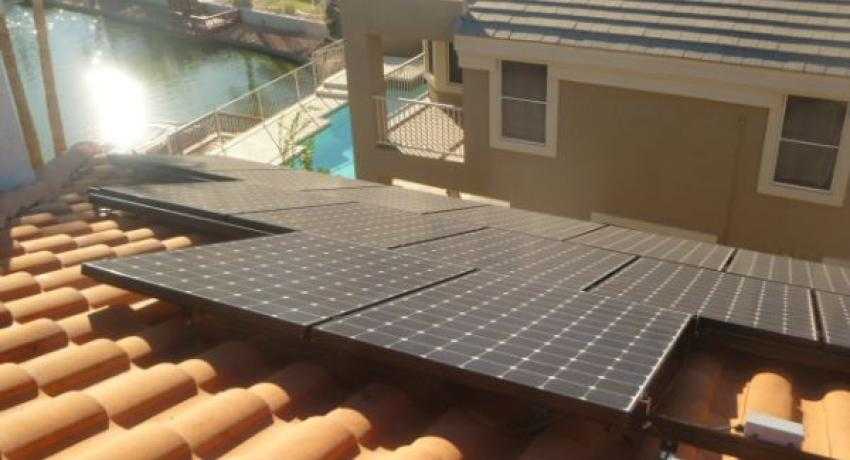Solar industry happy with AZ regulatory rec that APS not become a solar installer
Solar advocates celebrated last week when staff at the Arizona Corporation Commission recommended that the state’s largest utility not be allowed to get into the rooftop solar business.
The recommendation is not binding but commissioners will weigh it heavily when making their decision.
Arizona Public Service, the state’s biggest utility, has gained a reputation for trying every which way to thwart expanding distributed solar companies.
Recently, the company announced plans to install, own and maintain solar on 3,000 rooftops and to pay $30 a month rent in utility credits to the home and business owners who took advantage of the program. The $30 a month credit is higher than the $5 to $10 per month credit most other solar customers benefit, which would likely damage other solar installers currently doing business in the APS service area.
Solar advocates have argued that the program would be unfair because the utility is a regulated monopoly with guaranteed profits and it doesn’t have to worry about running a profitable solar enterprise because it can disperse costs among all rate payers and ask for rate increases to ensure their profit margins.
“The rooftop solar industry is made up of private businesses, not regulated monopolies,” writes Barry Goldwater JR, chairman of Tell Utilities Solar won’t be Killed, a conservative group that champions solar. “Rooftop solar is giving these monopolies the first competition they ever had and they don't like it.”
His organization values solar for the free market choice it creates and TUSK has argued against allowing utility companies to own and install distributed generation because it would pit the monopoly against free market businesses.
That has nothing to do with the staff recommendation to not allow APS to install distributed solar. Staff said the plan, which isn’t necessary to help the utility reach its portfolio standard, will cost $94.5 to $114 million to execute and it would saddle the utility with 30 years of 3,000 $30 monthly rooftop rental fees.
Staff suggested that instead the utility invest in $0.10 per watt incentives for home and business owners who want to install their own rooftop solar arrays. The utility would be able to get the same energy benefit with a $2 million investment that the $100 million project would cost.
Of course, most solar advocates don’t believe the APS proposal has anything to do with wanting to increase its solar energy production and instead is about finding a new way to cripple the emerging competition.
The Arizona legislature is also considering a law that would eliminate the property tax exemption for solar equipment if the equipment is owned by a third party. The third-party model enables more people to afford solar because there’s little or no money required upfront. If the equipment is to be taxed, it could wipe out the financial benefit of going solar.
With Arizona a deeply conservative and Republican state, the political climate would seem ripe for arguments against solar. But Goldwater has found plenty of support from the conservative base.
“Conservatives are smart enough to know that net metering opens energy choice and energy independence to more people through rooftop solar,” Goldwater writes. And I am certain that conservatives can see though APS' attempts to tax a competitor out of business.




